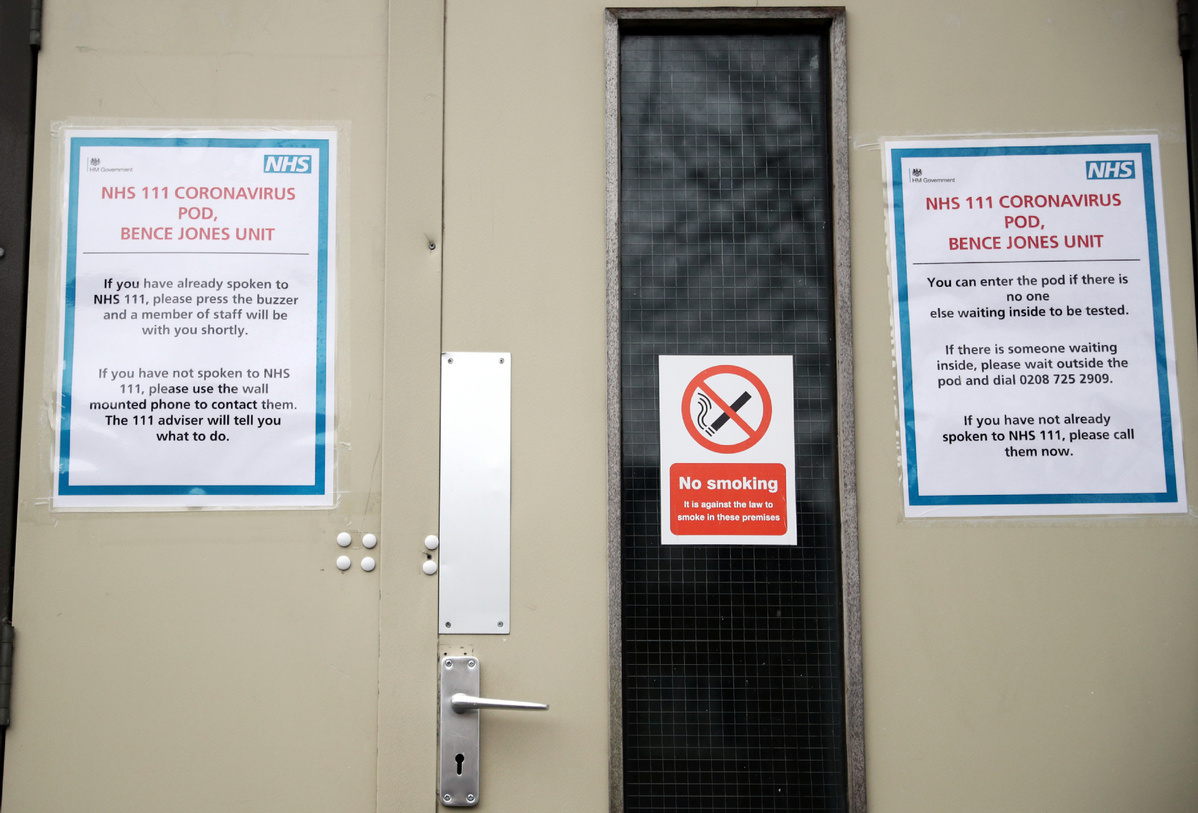
The entrance to a Coronavirus Pod is seen at St George's University Hospital in Tooting, south London, March 4, 2020. [Photo/Agencies]
Failure to test means frontline staff could be sidelined unnecessarily
Staff in Britain's National Health Service have told the BBC they feel like they are being treated as "cannon fodder" in the fight against the novel coronavirus because of the shortage of personal protective equipment, or PPE, being made available to them, increasing the likelihood of them catching the virus and passing it on to patients.
Prime Minister Boris Johnson has said the country had "stockpiles" of PPE, and previously Chancellor Rishi Sunak said "absolutely categorically, the NHS will get whatever resources it needs to get us through this and to respond to the health crisis."
But PPE is taking a long time to come through, and the continued failure to prioritize NHS staff for testing is preventing some who are not infected from working, because of the lack of certainty.
Frances Mair, a general practitioner in Scotland, told the BBC staff at her practice had been told they would not receive PPE until next week.
"Not having the correct or the best protective gear puts us and patients at risk," she told the Newsnight program. "It's very disheartening when you hear of colleagues talking about the way that they feel they are like cannon fodder, sent out to die."
The lack of test prioritization of NHS workers is causing more problems.
Iszy Lord is a doctor who shares a house with five colleagues, some of whom showed symptoms after a skiing trip. As a result they are all self-isolating for 14 days without having been tested, meaning some could be staying away from work unnecessarily.
"What's going to happen if anyone gets anything resembling a cold for the next few months, are we going to have to self-isolate for 14 days each time? It's alarming," she said.
"The NHS is busy and overstretched. If we are tested and don't have the virus, we could be back at work in two to three days rather than two weeks."
Nishant Joshi, who works in the accident and emergency unit at Luton and Dunstable general hospital just outside London, said it felt like medical staff were "fighting an invisible enemy, blindfolded, with both hands tied behind our backs and healthcare workers are at grave risk."
The head of NHS England Simon Stevens has already announced that all non-urgent surgery will be suspended from April 15 for at least three months, "with a discretion for hospitals to take action earlier if they need it," to avoid overburdening the system.
He has also written to senior NHS staff-explaining how beds in private hospitals are being block booked to deal with the inevitable growth in demand on services. "Their staff and facilities will then be flexibly available to you for urgent surgery, as well as for repurposing their beds, operating theaters and recovery facilities to provide respiratory support for COVID-19 patients," his letter said.


